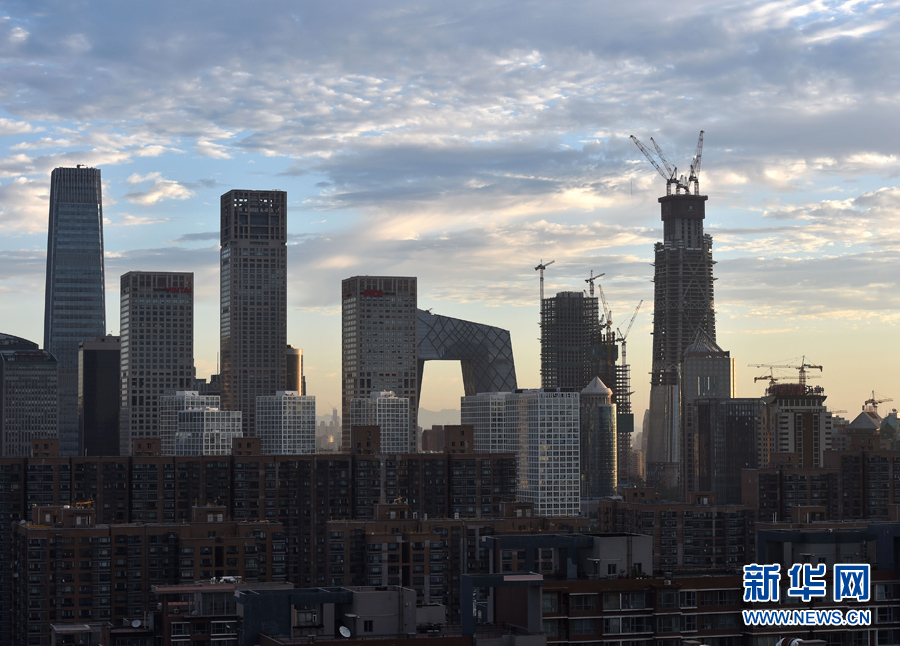
From the People’s Daily app.
This is Story in the Story.
Right now in Beijing, real estate agencies are shifting their attention away from buyers and sellers, and focusing on the rent-paying demographic.
According to China Economic Weekly, up to 13 first-and second-tier cities in China saw rent increases of more than 20 percent in the past year.
In cities across China, real estate firms buy or rent apartments and then restore them in a style indicative of their brand name. The agencies profit from the difference in price while also charging management fees to both sides.
Chengdu, the capital of Southern China’s Sichuan Province finished at the top of the list with a 30.98 percent increase in monthly rent.
The Beijing Municipal Commission of Housing and Urban-Rural Development along with other relevant authorities met with leading real estate agencies asking them to examine information related to the apartments carefully and to cease operations if they did not have a business license.
The real estate agencies afterward held a meeting with the heads of 10 major long-term apartment rental companies.
The companies promised not to drive up rents, and to release more than 120,000 apartments to the market for tenants.
Yang Xianling, chief economist and head of RealData, said the imbalance between supply, which has been falling, and the growing demand, especially from new college graduates in the summer was the major reason for the rent increases.
In today’s Story in the Story, we'll take a look at Beijing’s rapidly emerging home rental marketplace as real estate companies are now focused on young professionals who only want to rent an apartment, and the demographic has proven to be a far more lucrative one than first imagined.

(Photo: Xinhua)
Cao Yaomin, 27, a clerk in Beijing, would like to buy an apartment next year. He was recently hit with a 20 percent increase in his monthly rent and had no choice but to accept it.
Located within the 2nd West Ring Road in the capital’s Xicheng District, his 60 square-meter apartment that once cost 4,700 yuan ($688) is now 5,600 yuan ($818) a month.
"Half or 60 percent of my salary goes to rent, which is too much of a burden," he said.
According to Yang, white-collar professionals are switching from co-renting apartments to single units with better furniture provided by the agencies, which is another reason for the rent hikes.
"This trend, which is a structural improvement for the rental market, will continue for a long time," he said.
Liu Ridu owns four apartments in the capital. He recently raised the rent from 6,000 to 7,000 yuan a month on one of his properties, a 90-square meter unit on Jintai Road, off the Third Ring Road in East Beijing’s Chaoyang District.
"I know the rise this year is a bit strange, but for me, seeing that others have raised their rents, why should I refuse more money?" he said.
Liu explained that owners rarely rent their places to tenants directly and said, "We rent to agencies and pay one and a half months' rent as their fee, and then have no worries about keeping tenants. The agencies will do that for us."
Before May, it took about one month on average to find a tenant. But after capital entered the rental market, it now only takes two weeks or less, which clearly means some agencies have been stocking apartments.
Zhang Guodong, a travel agent in his early 30s, lives and works in Beijing. He is considering moving to Hangzhou, the capital city of Zhejiang Province, so he can rent an apartment that is bigger, cheaper, and closer to the city’s center.
“The soaring rent may be the final trigger that helps me to make up my mind," he said.
Many young professionals have been forced to move to Beijing’s Sixth Ring Road and beyond, which far from the city’s center. So it is not uncommon for them to rent a room rather than an apartment just save money, Zhang explained.
"I'm willing to work hard and I also want to enjoy my life," he added.
(Produced by Nancy Yan Xu, Lance Crayon, Raymond Mendoza, and Terry Guanlin Li. Music by: bensound.com. Text from China Daily and Xinhua.)


